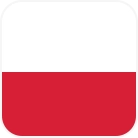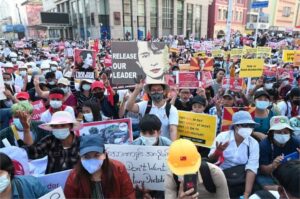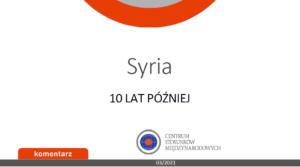
The pandemic has revealed new dimensions of Euro-Asian relations. Europe has realized how dependent it is on Asian suppliers of medicines and medical equipment, and that it suffers from a lack of EU competence in this area. The most important conclusions are the growing importance of health as a strategic sector, the trend towards shortening of supply chains and the growing political distance to China, while forcing a stronger position on the Chinese market and strengthening alliances with the Asian allies of the West.
Out of Asian countries, only Japan participates in the G7 format, but as many as 5 Asian countries are among the G20 club – world’s largest economies. One of the members of that grouping – apart from the leading countries of the Old Continent – is also the European Union as a separate entity. During the Donald Trump presidency, G20 was a platform for talks, among others on the consequences of the trade war between the US and China (Osaka summit, June 2019) [1] In November 2020, the leaders of G20 met virtually to discuss the state of the fight against the COVID-19 virus and measures to avert the economic and social crises. [2]
The transactional approach to alliances, as represented by US President Donald Trump, reinforced the role of the Asia-Europe meetings of 51 ASEM countries.[3] They constituted a stable mechanism for multilateral discussions on global challenges, such as sustainable development, climate change, regional security issues: terrorism, cybercrime, maritime security.[4] At a meeting of foreign ministers of 51 countries in December 2019 in Madrid, they discussed what Asia and Europe can do together “for effective multilateralism”. [5] In 2020, the summit’s agenda included also the topic of fighting the coronavirus, and the ensuing economic and social crisis as a result of the global lockdown, but the ASEM summit planned for November 13 was postponed to June 2021.[6]
At the same time, the pandemic made Europe aware that in the health area it depends on imports from Asia, especially from China and India. Already in April 2020, Vice-President of the European Commission, Věra Jourová, emphasized the need to “radically change course” and diversify supply chains so as to produce as much as possible in Europe. [7] During the Franco-German Summit in May 2020 one of the main topics discussed were disruptions in trade with Asia.
Europe-China relations
In April 2019, the European Commission published a document stating that “China is simultaneously a cooperation partner with whom the EU has closely aligned objectives, a negotiating partner, with whom the EU needs to find a balance of interests, an economic competitor in pursuit of technological leadership, and a systemic rival promoting alternative models of governance.”In the same month, the EU’s foreign direct investment (FDI) monitoring mechanism entered into force. [8]
The pandemic that began in December of the same year in China and came to Europe in the spring of 2020, gave China several months of advantage. The talk of “masked diplomacy” began as Beijing tried to take advantage of the early reluctance of EU member states to share medical equipment with each other and acted without coordination. The Chinese aid, however, had a commercial form (sale), and the whole action may be interpreted in terms of propaganda. However, it strengthened the efforts of both parties to finalize the Comprehensive Investment Agreement (CAI), which had been negotiated for 7 years.
The atmosphere of the EU-China Virtual Summit on September 14, 2020 was rather cold [9], but led to the signing of a bilateral agreement on 100 European Geographical Indications (GIs) in China and 100 Chinese Geographical Indications in Europe.[10] On December 30, 2020, under the German Presidency, the content of the CAI was agreed, thanks to which European companies will gain wider access to the Chinese market. Beijing has also committed to greater transparency on subsidies.[11] However, the agreement must be ratified by the parliaments of the EU countries, which calls into question its entry into force.
At the same time, the European Union continues to criticize China for not respecting human rights at home, for de facto eliminating the principle of “one country, two systems” in Hongkong, and activities in the South China Sea that are restricting freedom of maritime trade.[12] The steps taken by individual EU Member States in the Indo-Pacific basin are aligned to the US strategy, [13] e.g. France regularly sends its ships and nuclear submarines to that area[14]
Europe – India relations
Recent years have seen a strengthening of Indo-European ties. In 2019, the trade in goods between the two countries amounted to EUR 80 billion, which accounted for 11.1% of India’s total trade (the European Union is the country’s largest trading partner). In November 2018, the EU adopted a new strategy for India, describing the country as “an emerging global power that plays a key role in the current multipolar world and is a factor of stability in a complex region”.[15] The change of course in domestic politics (Hong Kong) and Beijing’s increasingly assertive foreign policy proved to be a factor that mobilized the two largest democracies in the world to cooperate more widely.
Due to the pandemic, the 15th EU-India Summit was postponed from March to July 2020 and was conducted online. It was agreed to start a dialogue on maritime safety and to strengthen cooperation in this area. An important topic was climate protection and fulfillment of the provisions of the Paris Agreement of 2015, as well as technological cooperation regarding artificial intelligence – critical in the development of the 5G network. Launching a “high-level dialogue on trade and investment” may be crucial for mutual relations, and critical for concluding the free trade agreement negotiated since 2007. [16]
Europe – East Asia relations
The “EU-Japan Economic Partnership Agreement” (EPA) entered into force on February 1, 2019.[17] It is the largest free trade agreement in history, removing tariffs and non-tariff barriers. It is part of a block of agreements of July 2018, the second of which is the Strategic Partnership Agreement (SPA),[18] and the third one – “Connectivity Partnership”, signed in September 2019.[19] The EPA has been compared to China’s Belt and Road initiative, but its potential is yet to be realized.[20]
In parallel, European-Japanese political cooperation is developing, based on the assumption that both sides are “like-minded partners who share interests and values such as democracy, respect for human rights and a rules-based multilateral order.”[21] Very significant in this respect was the first ever speech of the Japanese Foreign Minister Toshimitsu Motega at the Foreign Affairs Council of the European Union on January 25, 2021 which concerned the vision of a “free and open” Indo-Pacific.[22] French missions in the region are part of the American “freedom of navigation” strategy. In May 2021, France will take part in military exercises with Japan and the US for the first time.
Japan also invited Germany to joint exercises.[23] The new German strategy for the Indo-Pacific adopted in autumn 2020 assumes the promotion of the rule of law as well as open markets. The German government is contemplating sending a frigate to Japan with calling to the ports of Australia and Korea as well as crossing the South China Sea. It may herald a break with Berlin’s current policy based on pragmatic cooperation with China, focused on trade and investment. [24]
For the EU, the second strategic country in the region is the Republic of Korea. In 2016, a free trade agreement entered into force, thanks to which EU exports of goods to this country increased by 77% (2018) and led to sustainable trade between both parties. [25] In 2019, the trade exchange between both parties amounted to $108.6 billion[26] The European Union and South Korea are also cooperating on security policy, notably in the context of North Korea: its nuclear program and ballistic missiles.
During the pandemic, vaccines became a contentious issue between Europe and its East Asian allies. Japan and South Korea accused the Western capitals of a “vaccine nationalism”, i.e. seeking to provide vaccines first to EU citizens and only then exporting them outside the bloc.[27]
Europe – Southeast Asia relations
In January 2019, the European Union and ASEAN (Association of Southeast Asian Countries) decided to strengthen cooperation, and in December 2020 the Strategic Partnership was signed. Both parties declare their commitment to multilateralism, free and fair trade and open sea routes. ASEAN exports to the EU are worth nearly EUR 140 billion, and imports – EUR 97 billion. [28]
In November 2020, ASEAN joined the Regional Comprehensive Economic Partnership (RCEP), which also includes China, Japan, South Korea, Australia and New Zealand (the world’s largest free trade zone, covering about 30 percent of global GDP).[29]
The free trade agreement with Vietnam – one of the ASEAN members – entered into force on August 1, 2020, i.e. at the height of the pandemic (it was negotiated since 2012).[30] In addition to the abolition of customs duties on 99% of goods, it has opened public tenders in this country more widely to European companies and introduced facilitations in terms of doing business and investing in Vietnam.[31]
[1] https://www.euractiv.com/section/economy-jobs/news/eu-says-g20-summit-priorities-to-be-multilateralism-and-wto-reform/
[2] https://www.consilium.europa.eu/en/meetings/international-summit/2020/11/21-22/
[3] A platform for cooperation of the European Union, Norway, Switzerland, Great Britain with 21 countries of Asia, and the ASEAN Secretariat.
[4] https://www.dfat.gov.au/international-relations/regional-architecture/Pages/asia-europe-meeting-asem
[5] https://www.aseminfoboard.org/events/14th-asem-foreign-ministers-meeting-asem-fmm14
[6] https://www.aseminfoboard.org/events/13th-asem-summit-asem13
[7] https://www.europarl.europa.eu/doceo/document/E-9-2020-002449_EN.html
[8] Commission reviews relations with China, proposes 10 actions https://ec.europa.eu/commission/presscorner/detail/en/IP_19_1605
[9] https://www.dw.com/en/coronavirus-makes-germanys-eu-china-summit-go-virtual/a-54907146
[10] https://ec.europa.eu/commission/presscorner/detail/en/IP_19_6200
[11] https://ec.europa.eu/commission/presscorner/detail/en/STATEMENT_20_2546
[12] https://www.lowyinstitute.org/the-interpreter/outlines-european-policy-indo-pacific
[13]Commission reviews relations with China, proposes 10 actions https://ec.europa.eu/commission/presscorner/detail/en/IP_19_1605
[14] https://www.scmp.com/news/china/diplomacy/article/3121125/south-china-sea-challenge-beijing-french-nuclear-submarine
[15] https://ec.europa.eu/commission/presscorner/detail/en/IP_18_6481
[16] https://www.mea.gov.in/bilateral-documents.htm?dtl/32827/Joint_Statement_of_the_15th_IndiaEU_Summit_July_15_2020
[17] https://ec.europa.eu/trade/policy/in-focus/eu-japan-economic-partnership-agreement/
[18] https://isdp.eu/publication/eu-japan-strategic-partnership-agreement-spa/
[19] https://www.europarl.europa.eu/doceo/document/A-9-2020-0269_EN.html
[20] http://www.realinstitutoelcano.org/wps/portal/rielcano_en/contenido?WCM_GLOBAL_CONTEXT=/elcano/elcano_in/zonas_in/ari12-2020-esteban-armanini-eu-japan-connectivity-partnership-sustainable-initiative-awaiting-materialisation
[21] https://asia.nikkei.com/Opinion/EU-Japan-partnership-has-a-bright-future
[22] EU invites Japan’s Motegi to explain ‘free and open Indo-Pacific’ – Nikkei Asia
[23] Japan calls on Germany to send warship to East Asia | Asia| An in-depth look at news from across the continent | DW | 18.12.2020
[24] https://asia.nikkei.com/Politics/International-relations/Indo-Pacific/Germany-to-send-naval-frigate-to-Japan-with-eye-on-China
[25] https://ec.europa.eu/trade/policy/countries-and-regions/countries/south-korea/
[26] http://www.mofa.go.kr/eng/wpge/m_4909/contents.do
[27] https://uk.finance.yahoo.com/news/davos-2021-japan-korea-vaccine-nationalism-covid-19-coronavirus-eu-122117522.html
[28] https://www.consilium.europa.eu/media/46994/fact-sheet-euasean-strategic-partnership.pdf
[29] https://www.reuters.com/article/us-europe-asean-partnership-idUSKBN28B4V0
[30] http://trade.ec.europa.eu/doclib/docs/2015/august/tradoc_153674.pdf
[31] https://ec.europa.eu/commission/presscorner/detail/en/IP_20_1412
[evc_interactive_banner type=”classic” custom_link=”url:https%3A%2F%2Fmastersandrobots.tech%2F|||”]




